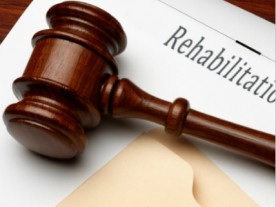Drug courts have become quite significant in the overall addiction treatment program in Massachusetts of late. If you look at the statistics of drug related crimes and the subsequent rulings in Massachusetts and then track their progress, you will find that the drug court programs have actually helped to bring drug addiction in Massachusetts down by a significant amount.
What do drug courts in Massachusetts do actually? They decide on crimes that are strongly influenced by some kind of addiction, mostly drugs. If a person has committed a crime or an offense under the influence of a drug, then the case will be moved on to a drug court, which will probably rule that the person needs to undergo a drug treatment program in Massachusetts. This can be in addition to or despite the other sentences and fines that could be levied on the person.
Massachusetts Addiction Support |
|
| Attleboro – (508) 858-5466 | Marlboro – (508) 377-4614 |
| Boston – (617) 307-4464 | New Bedford – (508) 630-9505 |
| Brighton – (617) 206-3810 | Peabody – (978) 233-0639 |
| Brocton – (508) 858-5322 | Peabody – (978) 384-1201 |
| Fitchburg – (978) 384-1206 | Plymouth – (508) 689-7703 |
| Gardner – (978) 384-1205 | Quincy – (617) 250-8519 |
| Holyoke – (413) 650-5603 | Springfield – (413) 306-3232 |
| Lawrence – (978) 233-2133 | Sterling – (978) 384-1148 |
| Lynn – (781) 780-5658 | Westfield – (413) 485-7002 |
| Malden – (781) 780-5669 | Woburn – (781) 780-5671 |

But what is more important to note is that the person is made to go through a drug treatment program.
It is highly unlikely that the person would have gone through a drug addiction treatment program if left on his or her own. The drug court thus becomes a means of bringing such people to treatment. Also, when a person has completed the course of treatment at the prescribed drug rehab in Massachusetts, it is very unlikely that the person will get back into the addiction and commit an offense again.
Substance abuse resources in Massachusetts indicate that as many as 98% of people who have been in drug court programs have not been rearrested.


